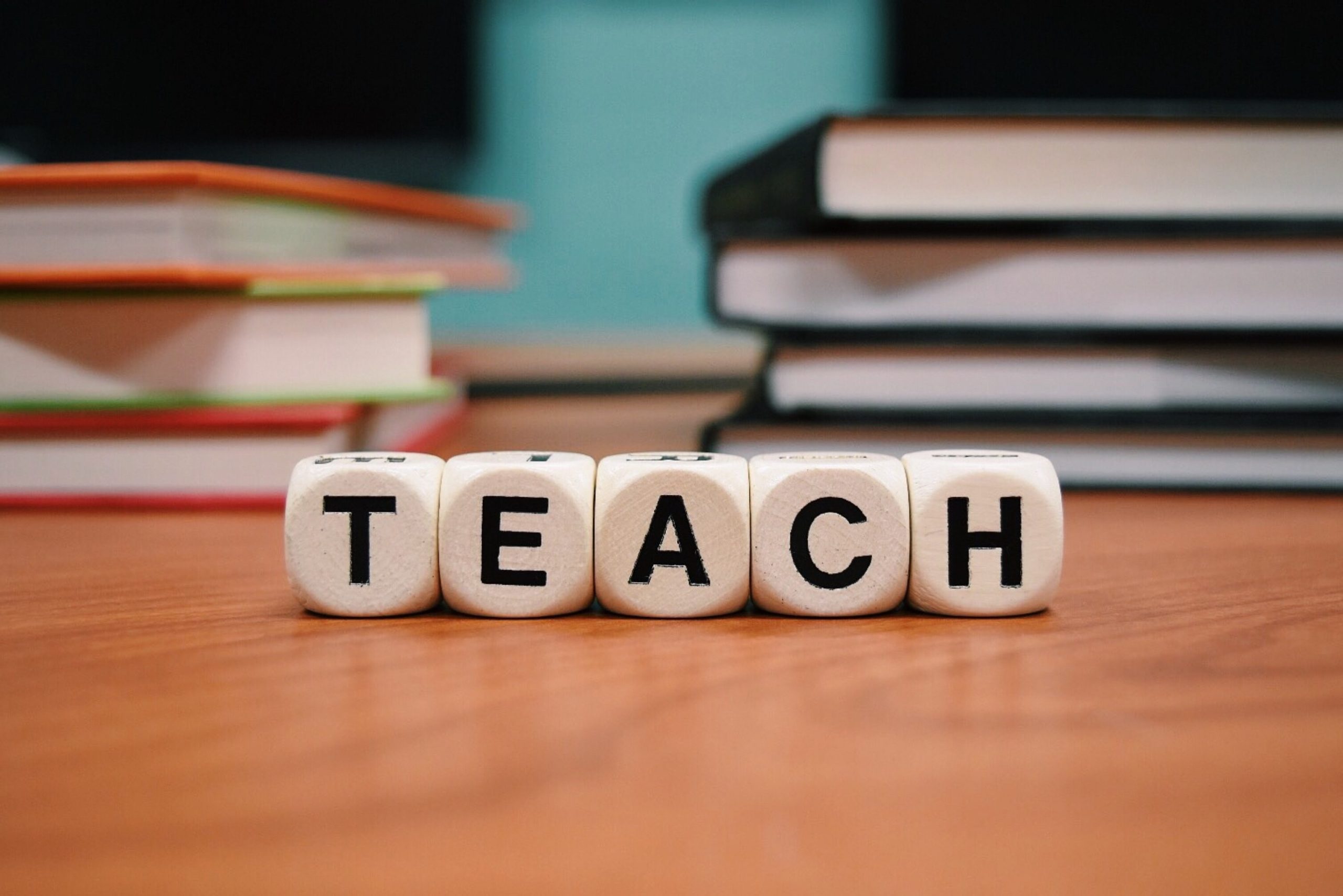The term “unschooling” likely derives from Ivan Illich‘s term “deschooling”, and was coined by education philosopher John Holt who is considered by many to be the father of the unschooling (and the homeschooling) movement.
The term “unschooling” has became used as a contrast to versions of homeschooling that were perceived as politically and pedagogically “school-like,” using textbooks and exercises at home, the same way they would be used at school.
John Holt’s definition of unschooling is allowing children as much freedom to learn in the world as their parents can comfortably bear. He also said he was not entirely comfortable with this term, and that he would have preferred the term “living”. He saw no distinction between learning and living a meaningful life.
Join our unschooling community and share your self-education journey in our Facebook Group:
21st Century Learning
It is estimated 65% of today’s children will do jobs that don’t currently exist. Under these circumstances, everyone must become a self-directed, lifelong learner. Otherwise, they will soon find themselves stuck in the past and their skills obsolete.
Unfortunately, our education system has become a mess of political interference, special interests and teachers unions based more on seniority than competence. The result today is one of the most inefficient systems imaginable, perfectly designed for the industrial age jobs that no longer exist with its heavy focus on standardization, tests and factory-like efficiency.
Fortunately, America was built by liberty loving and self-reliant people like Benjamin Franklin, Nicola Tesla, and Thomas Edison, and many Americans are returning to their roots. Homeschooling is now likely the fastest-growing form of education in the United States with an estimated 2.3 million American children being homeschooled today.
The Do-It-Yourself Ethic
If you’re like most people under 40, you learned how to use computers and the Internet through intuitively following your curiosity. You didn’t have to be taught by an expert. The digital era has created a better way to learn by doing and it is empowering a new generation of entrepreneurs, creative professionals, and self-directed creators.
I find that the unschooling philosophy aligns beautifully with the do-it-yourself hacker ethos that has fueled the Internet boom. Interestingly, many of the children of Silicon Valley’s most successful leaders such as Larry Page, Elon Musk or Jeff Bezos are taught in schools based on the Montessori or unschooling philosophy.
In a fast-changing world, we must empower children and adults alike to follow their own passion-driven projects and spend less sedentary time watching television, playing video games and passively consuming information. It’s not just IQ that’s important now, but also creative and social intelligence. It’s not what you know but what you can do with it.
Holt’s unschooling philosophy emphasizes that learning is a natural process, which works best when integrated into the spaces and activities of everyday life. Student-directed unschooling closely follows on the themes of educational philosophies proposed by Jean-Jacques Rousseau, Maria Montessori, and Jiddu Krishnamurti.
If you want to read an unschooling book from the perspective of eastern philosophy, I highly recommend reading Krishnamurti’s Education and the Significance of Life. I also highly recommend reading one of John Holt’s 10 books, in particular, Teach Your Own, How Children Learn, How Children Fail, and Learning All The Time.
Keep in mind that Holt’s unschooling philosophy applies just as much to adults who want to restore their childlike curiosity and wonder. School teaches a lot of bad habits that often need to be unlearned to thrive in business, creative professions, and wider society.
Read on for some of my favorite quotes from John Holt’s most influential books.
Teach Your Own
In Teach Your Own, Holt demonstrates how parents can help their children grow up to be social, active learners.
On Leadership:
“Leaders are not, as we are often led to think, people who go along with huge crowds following them. Leaders are people who go their own way without caring, or even looking to see, whether anyone is following them. “Leadership qualities” are not the qualities that enable people to attract followers, but those that enable them to do without them. They include, at the very least, courage, endurance, patience, humor, flexibility, resourcefulness, stubbornness, a keen sense of reality, and the ability to keep a cool and clear head, even when things are going badly. True leaders, in short, do not make people into followers, but into other leaders.”
On Boredom:
“We ask children to do for most of a day what few adults are able to do for even an hour. How many of us, attending, say, a lecture that doesn’t interest us, can keep our minds from wandering? Hardly any.”
On Homeschooling:
I have used the words “homeschooling” to describe the process by which children grow and learn in the world without going, or going very much, to schools, because those words are familiar and quickly understood. But in one very important sense they are misleading. What is most important and valuable about the home as a base for children’s growth in the world is not that it is a better school than the schools but that it isn’t a school at all.
Learning By Doing:
“What makes people smart, curious, alert, observant, competent, confident, resourceful, persistent – in the broadest and best sense, intelligent- is not having access to more and more learning places, resources, and specialists, but being able in their lives to do a wide variety of interesting things that matter, things that challenge their ingenuity, skill, and judgement, and that make an obvious difference in their lives and the lives of people around them.”
Preparing For The Future:
Of course, a child may not know what he may need to know in ten years (who does?), but he knows, and much better than anyone else, what he wants and needs to know right now, what his mind is ready and hungry for. If we help him, or just allow him, to learn that, he will remember it, use it, build on it. If we try to make him learn something else, that we think is more important, the chances are that he won’t learn it, or will learn very little of it, that he will soon forget most of what he learned, and what is worst of all, will before long lose most of his appetite for learning anything.”
On The Growing Unschooling Movement:
“We who believe that children want to learn about the world, are good at it, and can be trusted to do it with very little adult coercion or interference, are probably no more than one percent of the population, if that. And we are not likely to become the majority in my lifetime. This doesn’t trouble me much anymore, as long as this minority keeps on growing. My work is to help it grow.”
On Children In The Modern World:
“The modern world is dangerous, confusing, not meant for children, not generally kind or welcoming to them. We have much to learn about how to make the world more accessible to them, and how to give them more freedom and competence in exploring it. But this as a very different thing from designing nice little curricula.”
How Children Learn
In How Children Learn, he argues that for small children “learning is as natural as breathing.” He looks at how we learn to talk, to read, to count, and to reason, and how we can nurture and encourage these natural abilities in people.
Creating Your Own Path:
“Children make their own paths into the unknown, paths that we would never think of making for them.”
On Socialization:
“Any child who can spend an hour or two a day with adults who are interested in the world and like to talk about it, will on most days learn far more than they would learn in a week of school.”
On Coercion:
“If we continually try to force a child to do what he is afraid to do, he will become more timid, and will use his brains and energy, not to explore the unknown, but to find ways to avoid the pressures we put on him.”
On Curiosity:
“The child is curious. He wants to make sense out of things, find out how things work, gain competence and control over himself and his environment, and do what he can see other people doing. He is open, perceptive, and experimental. He does not merely observe the world around him, He does not shut himself off from the strange, complicated world around him, but tastes it, touches it, hefts it, bends it, breaks it. To find out how reality works, he works on it. He is bold. He is not afraid of making mistakes. And he is patient. He can tolerate an extraordinary amount of uncertainty, confusion, ignorance, and suspense … School is not a place that gives much time, or opportunity, or reward, for this kind of thinking and learning.”
Experiential Learning:
“We teachers – perhaps all human beings – are in the grip of an astonishing delusion. We think that we can take a picture, a structure, a working model of something, constructed in our minds out of long experience and familiarity, and by turning that model into a string of words, transplant it whole into the mind of someone else. Perhaps once in a thousand times, when the explanation is extraordinary good, and the listener extraordinary experienced and skillful at turning word strings into non-verbal reality, and when the explainer and listener share in common many of the experiences being talked about, the process may work, and some real meaning may be communicated. Most of the time, explaining does not increase understanding, and may even lessen it.”
Learning In The Real World:
“What children need is not new and better curricula but access to more and more of the real world… to make it easier for them to get where they want to go and to find out what they want to find out.”
How Children Fail:
In How Children Fail, he adds new insights into how children investigate the world, into the perennial problems of classroom learning, grading, testing, and into the role of the trust and authority in every learning situation.
Forgetting What We Learn In School:
“It is as true now as it was then that no matter what tests show, very little of what is taught in school is learned, very little of what is learned is remembered, and very little of what is remembered is used. The things we learn, remember, and use are the things we seek out or meet in the daily, serious, nonschool parts of our lives.”
On Grades, Testing and Fear:
“The anxiety children feel at constantly being tested, their fear of failure, punishment, and disgrace, severely reduces their ability both to perceive and to remember, and drives them away from the material being studied into strategies for fooling teachers into thinking they know what they really don’t know.”
On Passion:
“Children are born passionately eager to make as much sense as they can of things around them. If we attempt to control, manipulate, or divert this process… the independent scientist in the child disappears.”
On The Obsession With Tests:
“Pleasant experiences don’t make up for painful ones. No child, once painfully burned, would agree to be burned again, however enticing the reward. For all our talk and good intentions, there is much more stick than carrot in school, and while this remains so, children are going to adopt a strategy aimed above all else at staying out of trouble. How can we foster a joyous, alert, wholehearted participation in life if we build all our schooling around the holiness of getting ‘right answers’?”
On How Schooling Kills Passion:
“We destroy the disinterested (I do not mean uninterested) love of learning in children, which is so strong when they are small, by encouraging and compelling them to work for petty and contemptible rewards — gold stars, or papers marked 100 and tacked to the wall, or A’s on report cards… in short, for the ignoble satisfaction of feeling that they are better than someone else…. We kill, not only their curiosity, but their feeling that it is a good and admirable thing to be curious, so that by the age of ten most of them will not ask questions, and will show a good deal of scorn for the few who do.”
On Self-Directed Learning:
“Children do not need to be made to learn to be better, told what to do or shown how. If they are given access to enough of the world, they will see clearly enough what things are truly important to themselves and to others, and they will make for themselves a better path into that world then anyone else could make for them.”
Learning All The Time:
In Learning All The Time, he explores how children and adults can learn from anything and everything they see.
On The Beginner’s Mind:
“The myth that if you don’t start early, you might as well not start, tends to be a self-fulfilling prophecy. The music-making world that young people confront reminds me a lot of the world of school sports. After a lot of weeding out, in the end you’ve got a varsity with a few performers and an awful lot of people on the sidelines thinking, “Gee, it’s too bad I wasn’t good enough.” We need to be careful about that. There seems to be an unspoken idea, in instruction of the young, that the people who start the fastest will go the farthest. But that’s not only an unproven theory; it’s not even a tested theory. The assumption that the steeper the learning curve, the higher it will go, is also unfounded. If we did things a little differently, we might find out that people whose learning curves were much slower might later on go up just as high or higher.”
On Learning Like Nature:
“A child only pours herself into a little funnel or into a little box when she’s afraid of the world—when she’s been defeated. But when a child is doing something she’s passionately interested in, she grows like a tree—in all directions. This is how children learn, how children grow. They send down a taproot like a tree in dry soil. The tree may be stunted, but it sends out these roots, and suddenly one of these little taproots goes down and strikes a source of water. And the whole tree grows.”
Spend more time learning online by joining our community and taking action with our HyperLearning Toolkit.
- The 10 Best Pomodoro Timer Apps For Remote Workers - April 11, 2025
- Hacking The Flow Cycle: Brainwaves, Creativity and Flow States - April 11, 2025
- 100 Best iPhone Education Apps For Self-Directed Learning - April 10, 2025





 This website uses cookies to improve your web experience.
This website uses cookies to improve your web experience.
thank you – i’ve seen your toolkit. It has useful information! However, I am still searching for a organisation that focuses on creating a space/structure for unschooling adults
love this article – thank you for compiling this very interesting list! Like you mention – all these ideas of un-schooling are very applicable to adults, especially for those of us wanting to restore a sense of aliveness and curiosity about life.
On that note, I was curious whether you could direct me towards any resources/organisations/groups for un-schooling and re-enlivening fun and creativity in adults??
Keep up the excellent work Kyle!
thank you again,
Kat
I can’t think of any organizations off-hand but my free HyperLearning Toolkit covers a lot of helpful knowledge and resources: https://www.diygenius.com/toolkit
thank you – i’ve seen your toolkit. It has useful information! However, I am still searching for a organisation that focuses on creating a space/structure for unschooling adults ?